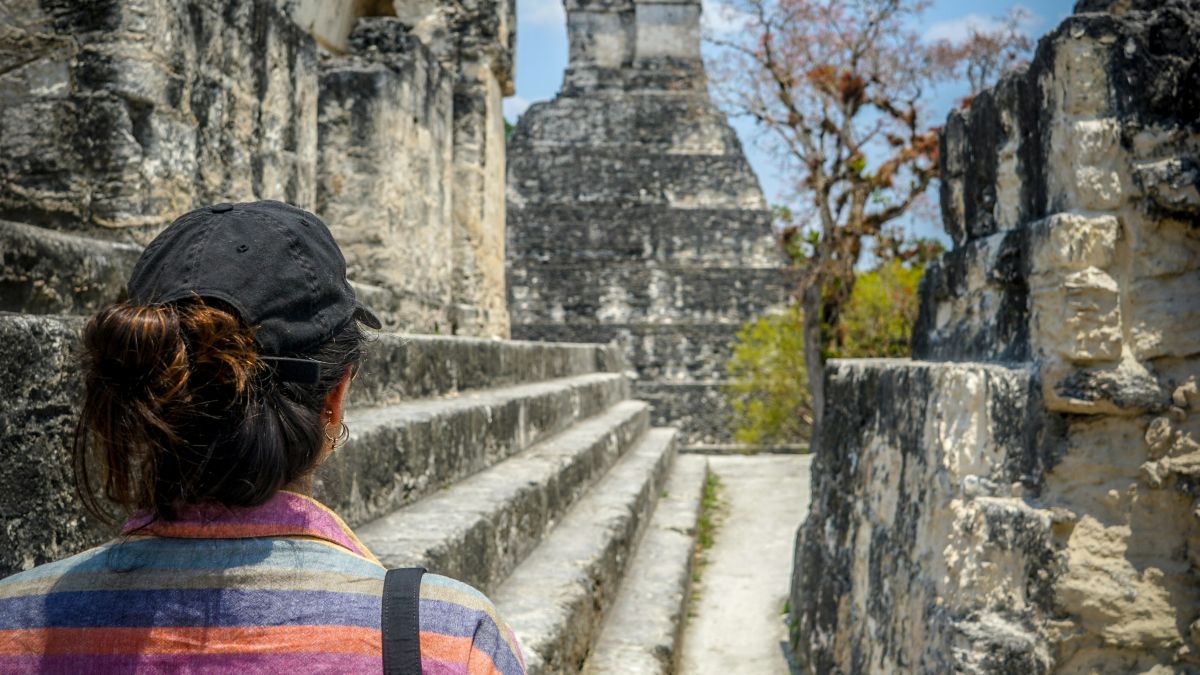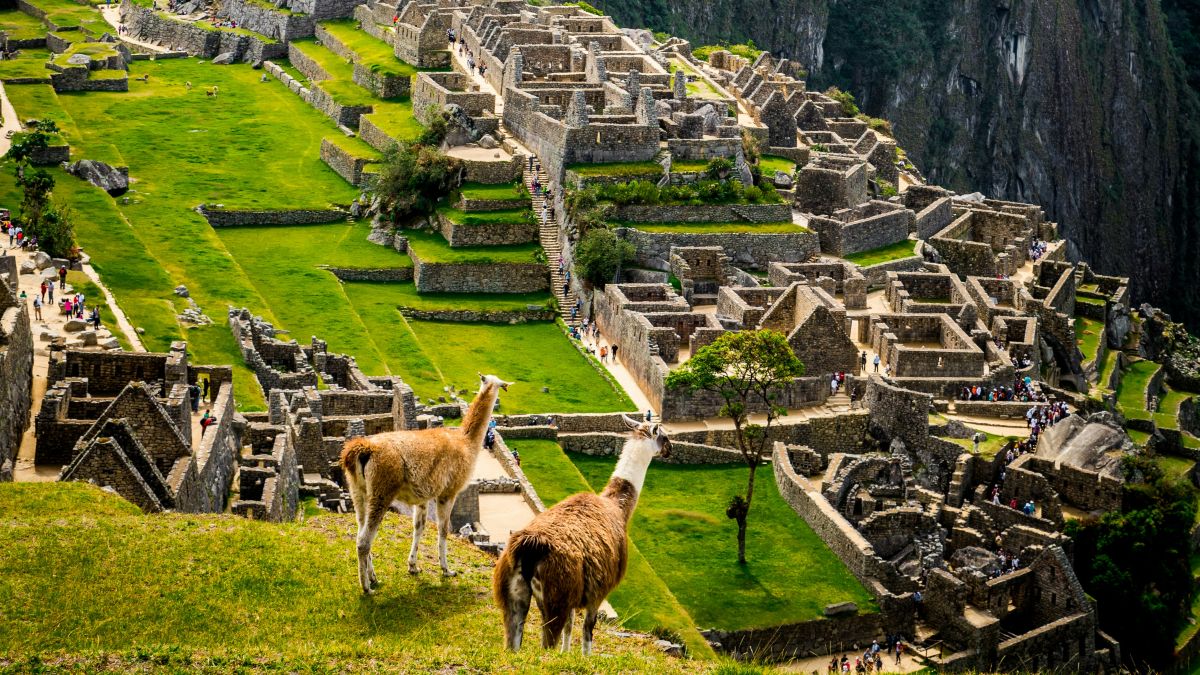In the second part of his series about the Biden Administration’s Central America policy, Nestor Quixtan looks at the upcoming visit of VP Kamala Harris to the region and how the United States views combatting corruption as the key to solving the ongoing crisis on its southern border.
As the Biden administration approaches its first 100 days in office, Central American politics begin to factor into some key foreign policy decisions.
The most pressing issue is the border crisis. At the United States/Mexico border, thousands of Central American migrants have begun to fill holding facilities. The so-called migrant “surge” has escalated since the November election of President Biden.
Central America and the Biden Administration: What can the region expect? (Part I: Immigration) https://t.co/lGfRQLk1Hc
— CentralAmericaLiving (@VidaAmerica) January 19, 2021
Earlier this year, Honduran migrant caravans clashed with Guatemala security forces, yet, the Biden administration denies a crisis exists (although the president recently said it was a crisis). They’re conflicted about using that word.
Both lawmakers underscored the mishandling of the migrants detained in these facilities.
Senator Cruz told reporters, “All of us today witnessed the ‘Biden cages.’ What is occurring here on the border is heartbreaking, and it is a tragedy.”
For his part, Castro said, “We want to figure out how this system can work better, so that it’s more humane, more respectful of people’s dignity.”
Although coming from different directions, Cruz and Castro seemed to agree that Biden’s border policy wasn’t looking much different from Trump’s. At least from the perspective of the migrant in a holding facility. New boss? Same as the old.
But not so fast. Although the border crisis is now an embarrassment for the Biden administration, it does, at least, appear focused on finding a solution. Unlike the previous administration, Biden is looking at the overarching issues behind the crisis. He’s seeking to understand, and then eradicate the causes of the migrant surge.
New: I sat down w/@SenatorCarper to talk about his years-long push to get people to look beyond the border “crisis”-or-not-a-“crisis” debate, how Biden can address root causes of migration + what the president is telling him.
More in The Recast: https://t.co/8MfHiVJw5J
— Sabrina Rodríguez (@sabrod123) April 23, 2021
It was always clear Biden would take another approach to this problem.
He spoke about it during his campaign, and spent his first days in office repealing Trump policies like the Safe Third Country Agreement. In a nutshell, this agreement forced countries like Guatemala to accept migrants from countries like Honduras if said migrants had passed through Guatemala on their way to the United States. The US would send the migrant back to Guatemala and tell them to claim asylum there instead.
In effect, the Trump administration coerced Guatemala, Honduras, and El Salvador to sign such agreements to accept asylum seekers from each other under threat of trade tarrifs, remission taxation, and other measures.
After nulling these agreements, Biden’s Secretary of State Jeremy Blinken said, “In line with the President’s vision, we have notified the Governments of El Salvador, Guatemala, and Honduras that the United States is taking this action as efforts to establish a cooperative, mutually respectful approach to managing migration across the region begin.”
In short, from a retorical standpoint at least, Biden wants to treat the Guatemala, Honduras, and El Salvador like equals. It’s a start, at least.
We will deliver on @POTUS’s vision of safe, orderly, and humane regional migration. As we suspend and terminate the Asylum Cooperative Agreements with the Governments of El Salvador, Guatemala, and Honduras, we will take concrete steps toward greater partnership & collaboration.
— Secretary Antony Blinken (@SecBlinken) February 6, 2021
So, what does the Biden administration plan to do about curbing massive migration from Central America?
The answer appears to lie in dialogue. President Biden has named a special envoy to Central America for the first time since the 1980s – diplomat Ricardo Zúñiga, who worked on plans under the Obama Administration to aid the region. Zúñiga also compiled a report for the Wilson Center about foreign aid to Central America.
On top of that, Biden’s also appointed Vice-President Kamala Harris to find an appropriate solution to the crisis. Last week, Harris announced she would be visiting Mexico and Guatemala very soon.
“Our focus is to deal with the root causes, and I am looking forward to traveling, hopefully as my first trip, to the Northern Triangle, stopping in Mexico and then going to Guatemala,” she said.
In this turn of events, the Biden administration intends to inject more than $4 billion into Central America. This investment comes with its own set of problems and potential embarrassments, though.
US State Department officials have rightfully pointed out that the biggest underlying matter in Central America is corruption. And while VP Harris is looking forward to meeting President Giammattei of Guatemala, there’s no word on whether she’ll meet President Orlando Hernandez of Honduras or President Nayib Bukele of El Salvador.
.@Eric_Latam and Ricardo Zúñiga comment on how assistance efforts from the U.S. to Central American countries have impacted migration:https://t.co/rPBNbpiGAS
— The Wilson Center (@TheWilsonCenter) April 20, 2021
Both presidents come with their risks.
Ricardo Zúñiga’s Wilson Center report refers to the Northern Triangle as a place “where corrupt local elites hold vast power to stymie growth and social progress.”
Right now, events on the ground in Honduras, El Salvador, and Guatemala don’t help to dispel Zúñiga’s words. President Orlando Hernandez’s brother recently received a life sentence in the United States for what Assistant US Attorney Matthew Laroche called “state-sponsored drug trafficking.” This sentence is still causing shockwaves throughout Honduras.
For his part, President Nayib Bukele of El Salvador looks increasingly authoritarian as he tightens his grip on power in that country. It remains to be seen if he’s a true friend or foe.
And no-one who knows Central America can talk about lack of corruption and bad governance in Guatemala with a straight face. Although in fairness, the Trump Administration’s complacency towards corruption muddled politics in Guatemala. A case in point is Trump using Guatemala’s expulsion of the UN anticorruption commission CICIG to bully former president Jimmy Morales into signing the Safe Third Country Agreement.
But for now, Guatamala seems to be the least embarrassing of the Northern Triangle countries for Harris to visit for presidential hobnobbing. Or at least the country deemed most easy to deal with from a US viewpoint.
US court sentences Honduran president’s brother to life in drug case https://t.co/M4iZubSfnI
— The Guardian (@guardian) March 30, 2021
So now it looks like the United States will be watching its $4 billion investment in Central America like a hawk. It clearly sees bad management and corruption as a key cause of migration from the region.
“The issue of corruption is endemic in Central America and all the region, and it is something that fuels migration,” says White House advisor Juan Gonzalez. New special envoy Ricardo Zúñiga goes further, saying, “What happens in Central America affects the United States.”
These statements highlight the Biden administration’s efforts to address corruption as a root cause of Central American migration.
They also serve to show any new investment and interest in the region isn’t entirely altruistic. It’s a geopolitical and security decision more than anything, designed to protect the United States, which, at the end of the day, doesn’t want migrants coming in caravans from Central America.
A recent article for @thehill co-authored by Tom Hare, senior technical associate at the @PulteInstitute suggests that U.S. policy toward the region during the Cold War is the “original root cause” of today’s migration from Central America. https://t.co/KejqJOqw5B
— Pulte Institute for Global Development (@PulteInstitute) April 23, 2021
Still, if it helps create a better standard of life for Central Americans so they don’t need to head north, that’s a good thing.
It remains to be seen what the Biden administration can actually do to support the rule of law and socioeconomic development in Central America, outside of throwing cash at the problem. The money will help for sure – Central America is still reeling from the Covid pandemic and the hurricanes that ravaged the region last year.
It might also be nice if the US reflected upon its own historic role in Central America which caused the upheavels and bad governance and conflict over years of meddling. This has directly led to the situation we see in the region today.
But beyond that, what? Northern Triangle governments now need to take actionable steps. They need to prove they’re committed to creating prosperity for their people and stamping out corruption. This is what Kamala Harris will want to see from them when she visits.
Can Guatemala, El Salvador, and Honduras deliver?
Nestor Quixtan is a Canadian/Guatemalan economist, linguist, and writer. He lives in Guatemala City.




